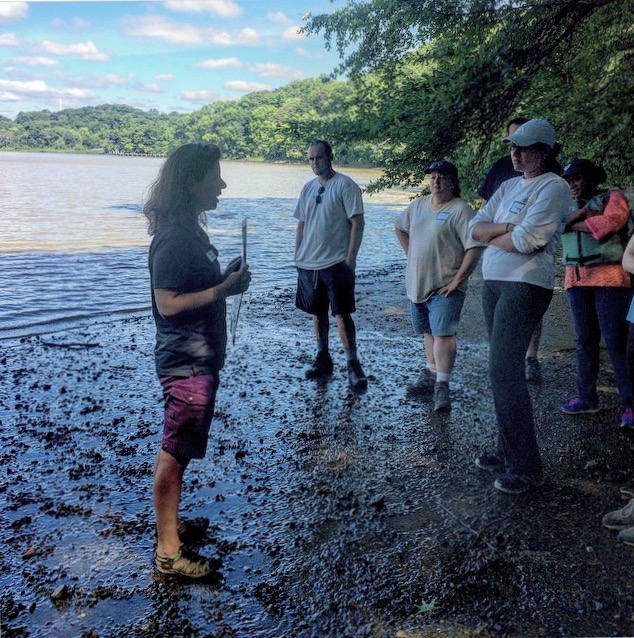Preparing Maryland Educators
Main_Content
(and their students) for a Resilient and Climate-Ready Future
 Maryland students, their families, and their teachers have the power to build sustainable communities that are resilient to climate change. Chesapeake and Coastal Service’s Conservation Education and Stewardship Division has been working diligently over the past several years to not only build an environmentally literate Maryland, but also a climate literate one. A climate literate Maryland is one that confidently makes informed decisions about activities that increase vulnerability to the impacts of climate change, and who (through a solid understanding of Earth’s climate system) take steps to reduce those vulnerabilities.
Maryland students, their families, and their teachers have the power to build sustainable communities that are resilient to climate change. Chesapeake and Coastal Service’s Conservation Education and Stewardship Division has been working diligently over the past several years to not only build an environmentally literate Maryland, but also a climate literate one. A climate literate Maryland is one that confidently makes informed decisions about activities that increase vulnerability to the impacts of climate change, and who (through a solid understanding of Earth’s climate system) take steps to reduce those vulnerabilities.
What have our education specialists been working on to build climate literacy? They’ve ...
- Built a strong track record of building climate literacy and resiliency through partnerships and networking --
- Designed specific teacher professional development opportunities to build educator capacity for teaching about climate science, and to understand what Maryland is doing to reduce risk and adapt to changes to our fragile ecosystems, including:
- Project WET -- Offering Advanced Topic Workshops on climate change and Water.
- “Climate Change 101” -- A one day basic training for educators on the science of climate change and its potential impacts in Maryland.
- “Climate Change 102” -- Outdoor field investigations to promote student engagement in citizen science and a broader understanding of how the shifting climate is affecting our natural resources, and how we monitor for changes in the ecosystem.
- Teachers On The Estuary: Climate Edition -- A five day immersive session for middle and high school teachers using the National Estuarine Research Reserve System Chesapeake Bay Maryland component sites as living laboratories. This program focuses on understanding how scientists study the Bay for climate impacts; how to conduct investigations with students; where Next Generation Science Standards (NGSS) addresses climate change helping to meet required school curriculum; and where to access usable, real-time online data to support students’ investigations.
- Created resources for formal and informal educators to use for teaching students about how impacts from climate change may affect the Bay, such as:
- Adapted existing programs to include messaging about resiliency and vulnerability:
These efforts to enhance Maryland Department of Natural Resources education program offerings shows a great commitment to building awareness of climate change science, and improved student environmental and climate literacy, with an emphasis on building coastal resilience, and a stronger community understanding and capacity to mitigate the causes of climate change and to reduce vulnerability to environmental change.